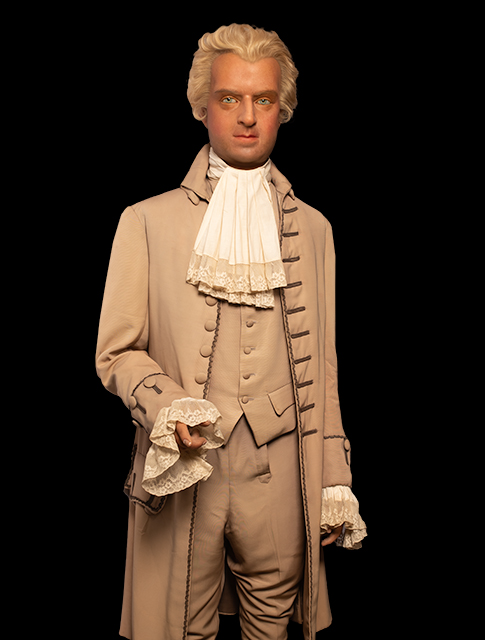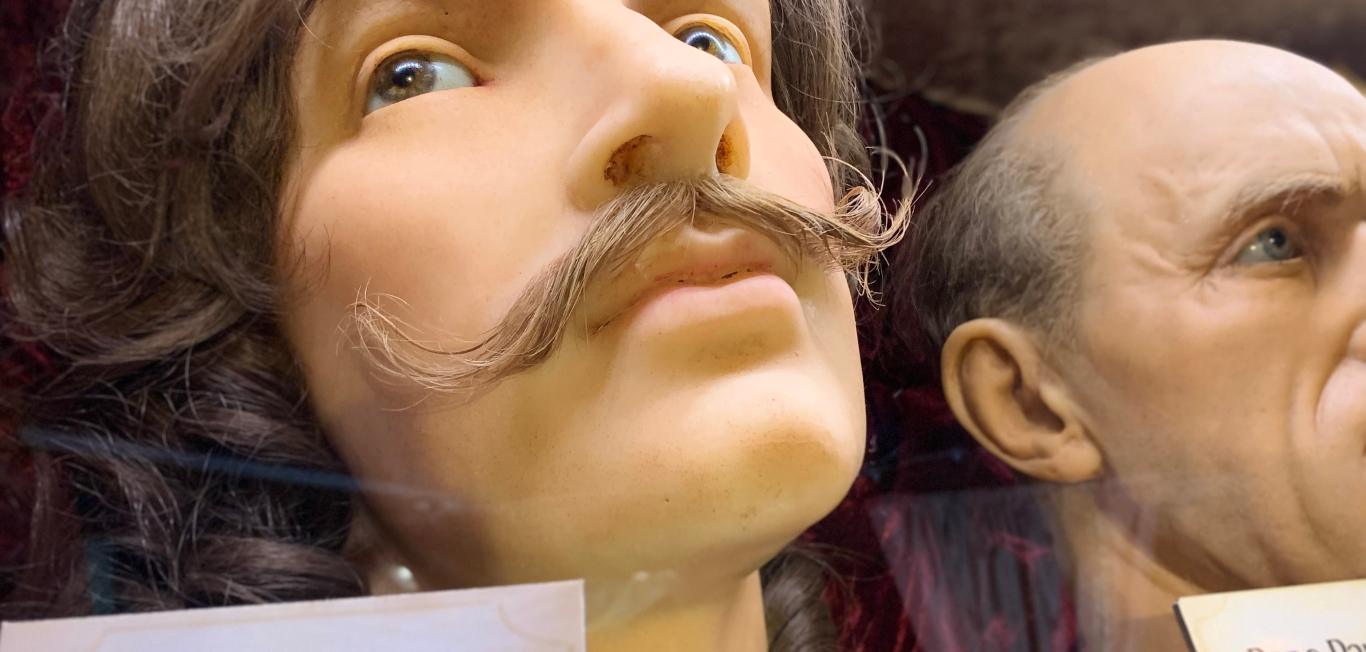History of Wolfgang Amadeus Mozart
Wolfgang Amadeus Mozart (1756-1791) is celebrated as one of the most influential, renowned and productive composers of the classical period. With over 600 compositions, Mozart’s works are some of the most beloved pieces of symphonic, chamber, operatic, and choral music. Mozart was born into a musically predisposed family in Salzburg.
Early Life and Works
Mozart was known by the names Wolfgang Amadé or Wolfgang Gottlieb. Mozart’s father, Leopold, originated from a well-to-do family with backgrounds in architecture and bookbinding. Unfortunately, Mozart and Leopold’s relationship was distant.
Classical Music
and Mozart
Wolfgang Amadeus Mozart was a child prodigy, composing his first piece of music at the age of five. He had great admiration for fellow Austrian composer Franz Joseph ”Papa” Haydn, who was over two decades his senior, and the duo had the opportunity to collaborate musically.
DID YOU KNOW?
Mozart composed his first piece of music at the age of five.
Mozart Finds Success
Wolfgang Amadeus Mozart was born in Salzburg, Austria on January 27, 1756. Mozart showed immense talent at a young age. His father, Leopold Mozart, saw a music prodigy and supported his son’s musical development. The success Mozart achieved as a composer and musician is an exceptional story.
In his early years, Mozart gained recognition as a child prodigy, touring across Europe and performing for royal courts and aristocrats. However, as he grew older, he faced challenges and struggled to find stable employment. He spent several years working as a court musician in Salzburg, but he yearned for greater artistic freedom and opportunities.
Mozart’s breakthrough came when he was finally emancipated from his court duties in Salzburg in 1781, allowing him to pursue his career independently. He decided to move to Vienna, the musical capital of Europe, in search of better prospects. Vienna was a vibrant city with a thriving music scene, and Mozart hoped to establish himself there.
Mozart’s talents as a pianist and composer grew and he quickly developed a reputation as a brilliant performer who captivated audiences with his virtuosic piano skills. His concerts were highly sought-after as he often improvised during performances, showcasing his incredible musical abilities.
While performing on the piano was a significant source of income for Mozart, he also focused on composition. He composed numerous symphonies, concertos, sonatas, operas, and chamber music pieces during his time in Vienna. His compositions were innovative, displaying his exceptional craftsmanship and musical genius.
During his time in Vienna, Mozart’s personal life also took a positive turn. In 1782, he married Constanze Weber, the sister of one of his former love interests, Aloysia Weber. Despite facing initial opposition from Constanze’s family, Mozart and Constanze built a strong relationship and had a happy marriage. They had six children, although only two survived infancy.
During his time in Vienna, Mozart enjoyed considerable success, receiving commissions and patronage from wealthy patrons, nobility, and the Viennese aristocracy. However, despite his talent and popularity, Mozart faced financial difficulties. He was not always prudent with money, and his lavish lifestyle and expenses often exceeded his income, leading to financial strain.
DID YOU KNOW?
Mozart had six children, although only two survived infancy.
Tragically, Mozart’s life was cut short when he passed away on December 5, 1791, at the age of 35. Despite his untimely death, Mozart left behind an extraordinary musical legacy. His compositions continue to be celebrated for their beauty, complexity, and emotional depth, making him one of the most influential and revered composers in history.
Interesting Facts About Wolfgang Amadeus Mozart
Mozart’s father pushed him into a career in music.
At the age of 11, he composed his first opera.
He achieved initial successes, but unfortunately, they were not long-lasting; his father then held him accountable for his mother’s death.
He had a strong dislike for his job in Salzburg.
In 1781, he relocated to Vienna, where his life underwent a dramatic transformation.
He strongly advocated that his children should not be breastfed.
Mozart was absent from his father’s funeral.
Mozart never finished the last piece he composed.
It is likely that something other than poison was the cause of his premature passing.
Mozart had the pleasure of spending time with a young Marie Antoinette.
Death and Controversy
On December 5, 1791, Wolfgang Amadeus Mozart died at the age of 35. His sudden and untimely death has given rise to numerous theories and debates throughout the years as there has been much speculation regarding the circumstances surrounding his death.
Mozart’s final year was marked by a whirlwind of creative activity, despite his declining health. He had been experiencing various health issues, including high fevers and swollen joints, which severely affected his ability to work. Nevertheless, he continued composing and completing some of his greatest masterpieces, including his famous Requiem Mass in D minor.
The exact cause of Mozart’s death remains uncertain. The official cause of death, as recorded in the Vienna death register, was listed as “hitziges Frieselfieber” (severe miliary fever), a term that was not specific enough to determine the underlying illness. This lack of specificity has fueled countless theories and speculations.
Mozart’s cause of death was a popular topic throughout Vienna, as the general population was intrigued by the mysterious circumstances. Some thought he was poisoned and others thought his demise was due to kidney disease. Historians and medical experts have studied all available documents that suggest Mozart likely died from chronic kidney failure. The symptoms of this illness are identical to the ailments Mozart was experiencing leading up to his death.
The controversy surrounding Mozart’s death and the various theories put forth over the years have captured the imagination of scholars, musicians, and the general public. Despite the lack of definitive answers, it is clear that Mozart’s premature death was a significant loss to the world of music. His extraordinary talent and artistic contributions continue to inspire and resonate with audiences to this day.
DID YOU KNOW?
Historians and medical experts have studied all available documents that suggest Mozart likely died from chronic kidney failure.
More Interesting Facts
Mozart began to experience hearing loss in his late 20s and was completely deaf by the time he was in his 30s.
Beethoven and Mozart never met. They were born 16 years apart and lived in different cities. Mozart died in 1791, when Beethoven was only 11 years old.
Mozart reportedly heard music in his head. He was known to compose music in his head without ever writing it down.










